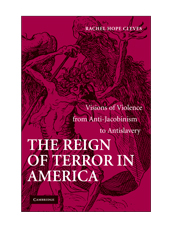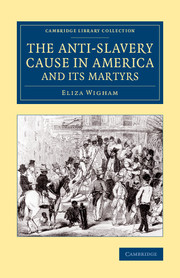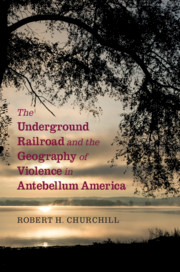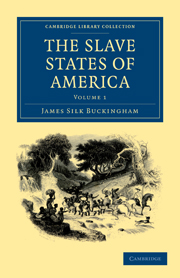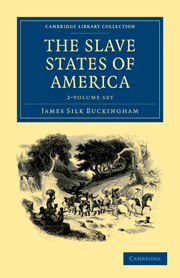The Reign of Terror in America
When the French Revolution degenerated into violent factionalism and civil war during the early 1790s, American conservative northeasterners reacted in profound terror. Alarmed by the possibility that the United States would follow her “sister republic” into chaos and civic bloodshed, northern Federalists and their Congregationalist allies reacted by aggressively attacking the violence of the French Revolution and its supposed American votaries. The Reign of Terror in America argues that American fears of the violence of the French Revolution led to antislavery, antiwar, and public education movements in the nineteenth-century United States. It is the first history of how Americans perceived the Reign of Terror, and reveals how significantly fears of French Violence changed the United States. Ultimately, these fears inspired a stark opposition to the violence of slaveholding, provided material for dramatic attacks on southern slavery, and helped to spark the Civil War.
- Provides a transatlantic context
- An original focus on violence and violent language
- A new explanation of the origins of abolitionism
Reviews & endorsements
“Historians have had a long debate over the implications of the Calvinist-Federalist response to the French Revolution. In The Reign of Terror in America, Rachel Hope Cleves definitively answers this question by focusing on their passionate condemnation of Jacobin violence and its enduring influence. Federalists feared the spread of violent mayhem to the United States, but as the Jacobin threat waned, they and their children began to turn their sights on the violence of slavery. Cleves establishes beyond dispute the complex ways in which the anti-Jacobin political culture shaped antebellum northern opinion, informing opposition to the War of 1812, the rise of a peace movement, the abolitionist response to slavery, and the northern mobilization for war in 1861. Mortal eloquence makes a major contribution to the history of violence in America, and to the history of American political culture.” – John L. Brooke, Ohio State University
“The Reign of Terror in America offers a sweeping, intricate, and elegant analysis of how representations of revolutionary violence in France and the Caribbean shaped the political and intellectual culture of generations of thinkers and activists in the United States.” – Laurent Dubois, Duke University
“In this outstanding work, Cleves expands our understanding of this age of passion and suggests its long-term significance. Joining a lamentably small but exemplary group of scholars willing to take seriously historical actors who are unsympathetic to most moderns, she finds humanitarianism in what too many historians simply dismiss as an unlikely place: among Federalists and Congregationalist divines. Based on truly exhaustive research in primary and secondary sources, this study centers on the history of violence but radiates out to illuminate many other historiographical concerns, including the histories of antislavery, the first American party system, antiwar sentiment, and education. Cleves’ unusually careful and extended efforts to understand the Federalists and their Congregationalist allies allow us to think in fresh ways about their long-term significance.” – Matthew Mason, Brigham Young University
“The Reign of Terror in America is a persuasive account of how revulsion to French revolutionary excesses laid the deep foundations of the antebellum antislavery movement. Anti-Jacobinism offered a powerful indictment of democracy run violently amok that inspired reformers to redeem democracy’s promise – ultimately by violent means. Rachel Hope Cleves gives us a fresh and provocative perspective on a complicated, crucially important chapter of our national history.” – Peter S. Onuf, University of Virginia
"In this brilliant book, Rachel Hope Cleves demonstrates the prominence and long-term significance of anti-Jacobinism in the early United States." -The Journal of American History, Matthew Rainbow Hale
"Cleves has written an important study not only about the uses of political rhetoric but also about the legacy of the Federalist Party."
The Journal of Interdisciplinary History, Paul A. Gilje, University of Oklahoma
"...Cleves's core argument that anti-Jacobinism influenced American thinking about violence, especially in the context of the slavery debate, is provocative and helpful." -Margaret Abruzzo, Journal of Southern History
"Rachel Cleves's excellent book joins a growing historiography that seeks to understand why Americans are so violent." -Kathleen Kennedy, Canadian Journal of History
Product details
March 2012Paperback
9781107403987
314 pages
229 × 152 × 18 mm
0.46kg
Available
Table of Contents
- Introduction: revolutionary violence in the Atlantic world
- 1. Violence and social order in the early American republic
- 2. A scene of confusion and blood: the American reaction against the French Revolution
- 3. Mortal eloquence: from anti-Jacobinism to antislavery
- 4. Fighting the war of 1812
- 5. Disciplining the 'Wild Beast': violence and education
- 6. Growing up anti-Jacobin: the Federalist-Abolitionist connection reconsidered
- Conclusion: the problem of violence in the Early Republic
- Appendix. Digital database citations: American narratives of the French Revolution.

